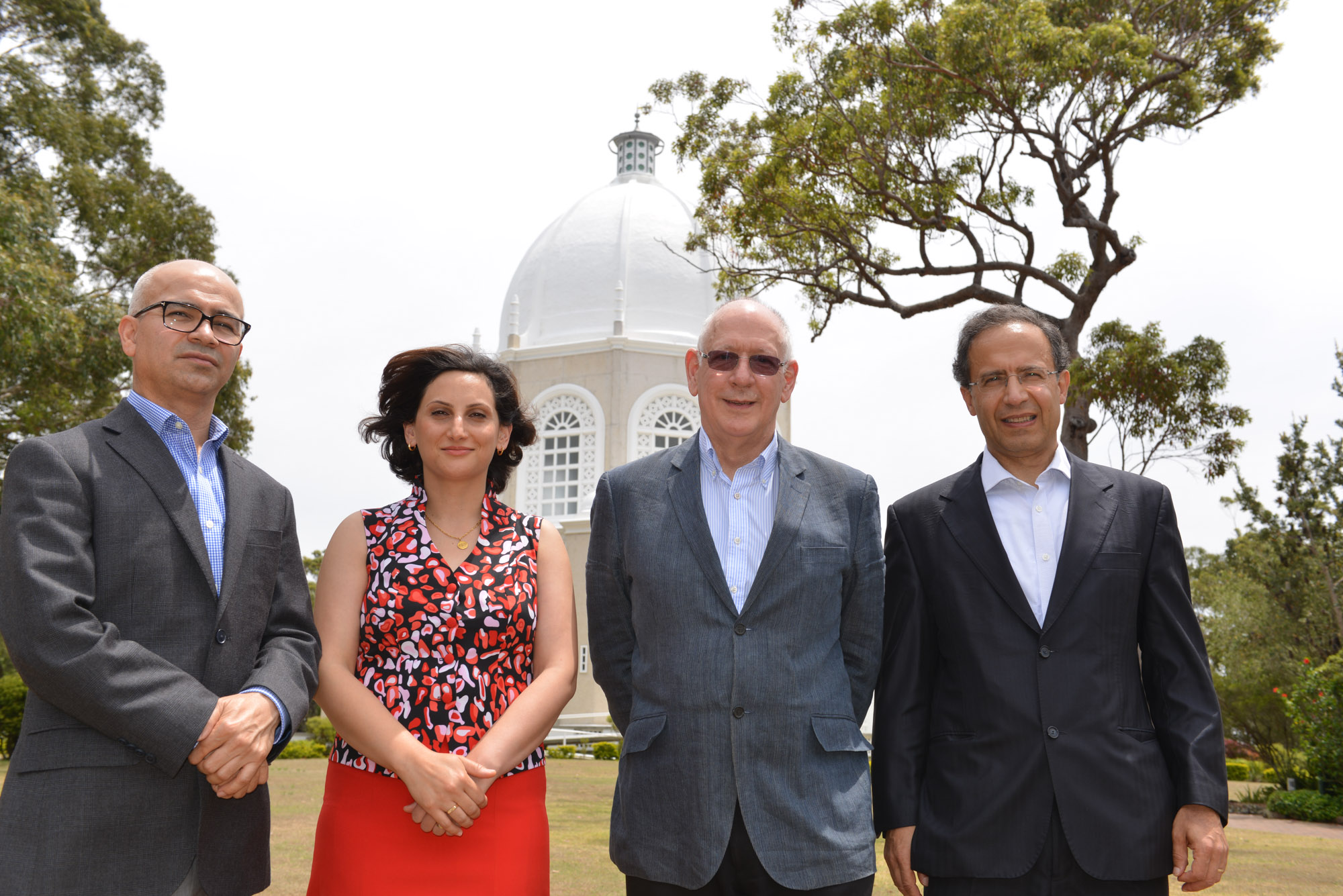
Discussion about Iran is vitally important for those concerned about human rights, freedom of religion and a just world, journalist John Cleary said at a reception after a Human Rights Day service at the Baha’i Temple in Sydney on 4 December 2016.
The prominent ABC radio presenter made his comment while chairing a panel discussion at the Australian launch of a publication, “The Baha’i Question: Persecution and Resilience in Iran”.
Mr Cleary said the launch of the Baha’i International Community’s publication was “very important” and that it was also relevant to the wider world society where there is a retreat from human rights.
One of the panelists, Nika Fahandezhsaadi, a Baha’i graduate student recently arrived in Australia from Iran, described how her sister had been arrested three times in the past five years because she was a member of the Baha’i Faith and now faced a five-year prison sentence, which is currently in the process of appeal.
Her brother-in-law had his business closed by the authorities, her father had been sacked from his job and had his house deliberately torched, and she herself had been persecuted at school, all because they are Baha’is.
Another panelist, lawyer Kambiz Ahadizadeh, said the evidence was clear of an official widespread, systematic persecution of the Baha’is of Iran.
“ As the [Baha’i Question] report indicates, since the start of Mr Rohani’s term of presidency, there have been some 20,000 items of religious incitement and hatred in Iranian media, which by the way are mostly controlled by the Government,” Mr Ahadizadeh said.
“There have been a number of cemeteries desecrated, there are a number of murders that have gone on without any kind of legal redress, there have been people beaten, intimidated, there have been businesses closed down.”
Also on the panel was Professor Fariborz Moshirian, a global finance specialist at the University of New South Wales, who said human rights law requires people to have access to education, and to business opportunity.
Professor Moshirian cited as abuses of that law the ban on Baha’is in Iran attending university and a systematic policy of eroding the capacity of Baha’is to run businesses.
Those persecuting the Baha’is claim any religion that came after Islam is not a religion and so its members are not part of Iran’s society, he said.
“I think the strategy is to go beyond persecution of people who are Baha’i leaders, of Bahá’ís who are active.
“They are trying to target the education system, and they are targeting now the economic and business side.
“And the purpose of all of that is, they argue that we create an environment where Bahá’ís have no choice but to leave this country.”
Members of the Baha’i Faith, an independent world religion recognised worldwide and at the United Nations, are known for their adherence to the Faith’s principles of obedience to the law of their respective countries and non-involvement in partisan politics.
Successive Australian foreign ministers have condemned the persecution of Baha’is in Iran, as has the United Nations General Assembly.
